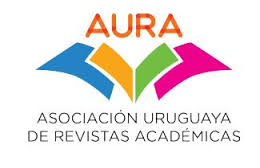IMPACTO DE LOS MICROPLÁSTICOS EN MACROINVERTEBRADOS DE ECOSISTEMAS DULCEACUÍCOLAS EN COLOMBIA: UNA REVISIÓN DE LITERATURA DE LA ÚLTIMA DÉCADA
DOI:
https://doi.org/10.26462/33.2.8Palabras clave:
Ecosistemas dulceacuícolas, limnología, macroinvertebrados, microplásticosResumen
Este estudio recopila la literatura científica de los últimos 10 años sobre microplásticos y su impacto en macroinvertebrados en ecosistemas dulceacuícolas de Colombia. A pesar de su relevancia ambiental y de salud pública, es escasa la investigación sobre estos contaminantes emergentes en comparación con estudios en sistemas marinos del país.
Descargas
Citas
Annemeysmans. (2022). Plastics production continued to rise in Q3 2021 despite a decline in EU27 manufacturing production. Plastics Europe. https://plasticseurope.org/media/plastics-production-continued-to-rise-in-q3-2021-despite-a-decline-in-eu27-manufacturing-production/
Akindele, E.O., Ehlers, S.M., & Koop, J.H.E. (2020). Freshwater insects of different feeding guilds ingest microplastics in two Gulf of Guinea tributaries in Nigeria. Environmental Science and Pollution Research, 27(26), 33373–33379. https://doi.org/10.1007/s11356-020-08763-8
Álvarez-Troncoso, R., Gutiérrez, D., Villar, I., Ehlers, S.M., Soto, B., Mato, S., & Garrido, J. (2024). Microplastics in water, sediments and macroinvertebrates in a small river of NW Spain. Limnetica, 43(2), 199–212. https://doi.org/10.23818/limn.43.13
Aranguren-Díaz, Y., Galán-Freyle, N.J., Guerra, A., Manares-Romero, A., Pacheco-Londoño, L.C., Romero-Coronado, A., Vidal-Figueroa, N., & Machado-Sierra, E. (2024). Aquifers and Groundwater: Challenges and Opportunities in Water Resource Management in Colombia. Water, 16(5), 685. https://doi.org/10.3390/w16050685
Arias-Paco, A., & Springer, M. (2023). Patrones de incorporación de microplásticos en estuches larvales y pupales de Limnephilus (Trichoptera: Limnephilidae). In VI Congreso Latinoamericano de Macroinvertebrados y Ecosistemas Acuáticos, IV Simposio Internacional de Aguas Continentales de Las
Américas, Antigua, Guatemala.
Au, S. Y., Bruce, T. F., Bridges, W. C., & Klaine, S. J. (2015). Responses of Hyalella azteca to acute and chronic microplastic exposures. Environmental Toxicology and Chemistry, 34(11), 2564–2572. https://doi.org/10.1002/etc.3093
Badea, M.A., Balas, M., & Dinischiotu, A. (2023). Microplastics in Freshwaters: Implications forAquatic Autotrophic Organisms and Fauna Health. Microplastics, 2(1), 39–59. https://doi.org/10.3390/microplastics2010003
Ballesteros Navia, Y.V., Cantera Kintz, J.R., Peña Salamanca, E.J., & Pinilla Agudelo, G. (2023). Composition and distribution of hyporheic and macrobenthic fauna in a Neotropical mountain river, Colombia. Limnetica, 42(2), 155–174. https://doi.org/10.23818/limn.42.12
Battulga, B., Kawahigashi, M., & Oyuntsetseg, B. (2022). Characterization of biofilms formed on polystyrene microplastics (PS-MPs) on the shore of the Tuul River, Mongolia. Environmental Research, 212, 113329. https://doi.org/10.1016/j.envres.2022.113329
Bhatt, V., & Chauhan, J.S. (2023). Microplastic in freshwater ecosystem: bioaccumulation, trophic transfer, and biomagnification. Environmental Science and Pollution Research, 30(4), 9389–9400. https://doi.org/10.1007/s11356-022-24529-w
Blettler, M.C.M., & Wantzen, K.M. (2019). Threats Underestimated in Freshwater Plastic Pollution: Mini-Review. Water, Air, & Soil Pollution, 230(7), 174. https://doi.org/10.1007/s11270-019-4220-z
Calderón Quimbaya, H., Martínez Silva, P., & Muñoz Yustres, J.L. (2020). Caracterización y cuantificación de microplásticos en los sedimentos y la columna de agua del río Magdalena en la ciudad de Neiva, Colombia. In E. Serna M. (Ed.), Desarrollo e Innovación en Ingeniería (Quinta ed., pp. 2–7). Instituto Antioqueño de Investigación IAI. https://doi.org/10.5281/zenodo.4031207
Castrillón Gutiérrez, M.C., Gómez Méndez, L.D., & Mejía Chica, S.M. (2024). Microplásticos, amenaza invisible en el océano: una revisión desde la química y la biología. Revista Facultad de Ciencias Básicas, 18(2), 41–61. https://doi.org/10.18359/rfcb.7046
Castro-Castellon, A.T., Horton, A.A., Hughes, J.M.R., Rampley, C., Jeffers, E.S., Bussi, G., & Whitehead, P. (2022). Ecotoxicity of microplastics to freshwater biota: Considering exposure and hazard across trophic levels. Science of The Total Environment, 816, 151638. https://doi.org/10.1016/j.scitotenv.2021.151638
Cháves Velasco, J.J., Arias Hoyos, A., Muñoz Solarte, D.M., & Romero Puentes, R.B. (2023). Estudio de microplásticos en muestras de agua y sedimentos de un río urbano del suroccidente de Colombia. Investigación e Innovación en Ingenierías,11(2),120–130. https://doi.org/10.17081/invinno.11.2.6637
Cuellar-Berrío, M.A., Reinoso-Flórez, G., & Guevara, G. (2023a). Plástico en sistemas dulceacuícolas: un análisis de las interacciones entre microplásticos y larvas de tricópteros. En: VI Congreso Latinoamericano de Macroinvertebrados y Ecosistemas Acuáticos, IV Simposio Internacional de Aguas Continentales de Las Américas, Antigua, Guatemala.
Cuellar-Berrío, M.A., Reinoso-Flórez, G., & Guevara, G. (2023b). Tricópteros (Insecta: Trichoptera): arquitectos y centinelas dulciacuícolas que interactúan con microplásticos. En: LVIII Congreso Nacional y IX Internacional de Ciencias Biológicas, Santa Rosa de Cabal, Risaralda. https://www.asociacioncolombianadecienciasbiologicas.org/wp-content/uploads/2024/03/MEMORIAS-CONGRESO-2023-final2.pdf
Cuellar-Berrío, M.A., Reinoso-Flórez, G., & Guevara, G. (2024). Tricópteros de la cuenca del Río Combeima (Tolima, Colombia) y su relación con impactos antropogénicos. Revista de la Asociación Colombiana de Ciencias Biológicas, 36, 126–136.
Cui, X., Yang, T., Li, Z., & Nowack, B. (2024). Metaanalysis of the hazards of microplastics in freshwaters using species sensitivity distributions. Journal of Hazardous Materials, 463, 132919. https://doi.org/10.1016/j.jhazmat.2023.132919
Drago, C., Pawlak, J., & Weithoff, G. (2020). Biogenic Aggregation of Small Microplastics Alters Their Ingestion by a Common Freshwater Micro-Invertebrate. Frontiers in Environmental Science, 8, 574274. https://doi.org/10.3389/fenvs.2020.574274
Eberhard, T., Casillas, G., Zarus, G.M., & Barr, D.B. (2024). Systematic review of microplastics and nanoplastics in indoor and outdoor air: identifying a framework and data needs for quantifying human inhalation exposures. Journal of Exposure Science & Environmental Epidemiology, 34(2), 185–196.
https://doi.org/10.1038/s41370-023-00634-x
EC (Ed.). (2024). European Commission, Directorate-General for Research and Innovation, Publications Office of the European Union. CORDIS results pack on ocean plastic pollution. Tackling marine litter from source to sea. Publications Office of the European Union. https://doi.org/10.2830/996417.
Eerkes-Medrano, D., & Thompson, R. (2018). Chapter 4 - Occurrence, Fate, and Effect of Microplastics in Freshwater Systems. In E. Y. Zeng (Ed.), Microplastic Contamination in Aquatic Environments (pp. 95–132). Elsevier. https://doi.org/10.1016/B978-0-12-813747-5.00004-7
Eerkes-Medrano, D., Thompson, R.C., & Aldridge, D.C. (2015). Microplastics in freshwater systems: A review of the emerging threats, identification of knowledge gaps and prioritisation of research needs. Water
Research, 75, 63–82. https://doi.org/10.1016/j.watres.2015.02.012
Ehlers, S.M., Manz, W., & Koop, J.H.E. (2019). Microplastics of different characteristics are incorporated into the larval cases of the freshwater caddisfly Lepidostoma basale. Aquatic Biology, 28, 67–77. https://doi.org/ 10.3354/ab00711
Escobar Condor, E.W., Izquierdo Villasante, Y., Macedo Riva, A., Remuzgo Panduro, G., & Huiman Cruz, A. (2020). Impacto de la ingesta de residuos plásticos en peces. Revista Kawsaypacha: Sociedad y Medio Ambiente, 4, 79–92. https://doi.org/10.18800/kawsaypacha.201902.004
Foley, C.J., Feiner, Z.S., Malinich, T.D., & Höök, T.O. (2018). A meta-analysis of the effects of exposure to microplastics on fish and aquatic invertebrates. Science of The Total Environment, 631–632, 550–559. https://doi.org/10.1016/j.scitotenv.2018.03.046
Geyer, R., Jambeck, J.R., & Law, K.L. (2017). Production, use, and fate of all plastics ever made. Science Advances, 3(7), e1700782. https://doi.org/10.1126/sciadv.1700782
Greenpeace. (2018). Colombia, mejor sin plásticos. La contaminación plástica en Colombia y el mundo. http://greenpeace.co/pdf/reporte_plasticos.pdf
Hoellein, T.J., & Rochman, C.M. (2021). The “plastic cycle”: a watershed-scale model of plastic pools and fluxes. Frontiers in Ecology and the Environment,19(3), 176–183. https://doi.org/10.1002/fee.2294
Hurley, R.R., Woodward, J.C., & Rothwell, J.J. (2017). Ingestion of Microplastics by Freshwater Tubifex Worms. Environmental Science & Technology, 51(21), 12844–12851. https://doi.org/10.1021/acs.est.7b03567
Lebreton, L.C.M., van der Zwet, J., Damsteeg, J.-W., Slat, B., Andrady, A., & Reisser, J. (2017). River plastic emissions to the world's oceans. Nature Communications,8(1),15611. https://doi.org/10.1038/ncomms15611
León-Muez, D., Peñalver-Duque, P., Ciudad, C., Muñoz, M., Infante, O., Güemes Santos, S., Parrilla Giráldez, R., & Serrano, L. (2020). Primer muestreo de microplásticos en arroyos y ríos de la España peninsular. Ecosistemas, 29(3), 2087. https://doi.org/10.7818/ECOS.2087
Martínez Silva, P., & Nanny, M.A. (2020). Impact of Microplastic Fibers from the Degradation of Nonwoven Synthetic Textiles to the Magdalena River Water Column and River Sediments by the City of Neiva, Huila (Colombia). Water, 12(4), 1210. https://doi.org/10.3390/w12041210
Meijer, L.J.J., van Emmerik, T., van der Ent, R., Schmidt, C., & Lebreton, L. (2021). More than 1000 rivers account for 80% of global riverine plastic emissions into the ocean. Science Advances, 7(18), eaaz5803. https://doi.org/10.1126/sciadv.aaz5803
MinAmbiente. (2023). Gobierno Nacional prohíbe plásticos de un solo uso en áreas naturales protegidas y Parques Nacionales Naturales. Bogotá: Ministerio de Ambiente y Desarrollo Sostenible. Retrieved from:
Miranda-Peña, L., Urquijo, M., Arana, V.A., García- Alzate, R., García-Alzate, C.A., & Trilleras, J. (2023). Microplastics Occurrence in Fish from Tocagua Lake, Low Basin Magdalena River, Colombia. Diversity,15(7), 821. https://doi.org/10.3390/d15070821
Morritt, D., Stefanoudis, P.V., Pearce, D., Crimmen, O.A., & Clark, P.F. (2014). Plastic in the Thames: a river runs through it. Marine pollution bulletin, 78(1-2), 196-200. https://doi.org/10.1016/j.marpolbul.2013.10.035
Porras-Rojas, M.A., Charry-Vargas, C., Muñoz-Yustres, J.L., Martínez-Silva, P., & Gómez- Méndez, L.D. (2023). Characterization of Microplastics and Mesoplastics and Presence of Biofilms, Collected in the Gualí Wetland Cundinamarca, Colombia. Microplastics, 2(3), 255–267. https://doi.org/10.3390/microplastics2030021
Posada, J.C., & Montes-Florez, E. (2021). Revisión: materiales poliméricos biodegradables y su aplicación en diferentes sectores industriales. Informador Técnico, 86 (1), 94–110. https://doi.org/10.23850/22565035.3417
Quirós-Rodríguez, J.A., Nisperuza-Pérez, C., &Yepes-Escobar, J. (2021). Los microplásticos, una amenaza desconocida para los ecosistemas marinos deColombia: perspectivas y desafíos a enfrentar. Gestión y Ambiente, 24(1), 91615. https://doi.org/10.15446/ga.v24n1.91615
Rambacher, J., Pantos, O., Hardwick, S., Cameron,E.Z., & Gaw, S. (2023). Transforming encounters: A review of the drivers and mechanisms of macrofaunal plastic fragmentation in the environment. Cambridge Prisms: Plastics, 1, e6, Article e6. https://doi.org/10.1017/plc.2023.6
Ríos, M.F., Márquez, F., Gatti, M., Galván, D.E., Bravo, G., Bigatti, G., & Brogger, M.I. (2020). Microplásticos: macroproblemas. In N. Sbarbati Nudelman (Ed.), Residuos plásticos en Argentina: su impacto ambiental y en el desafío de la economía circular (Vol. 16, pp. 8–22). Academia Nacional de Ciencias Exactas, Físicas y Naturales. https://www.ancefn.org.ar/user/FILES/Residuos_plasticos-2.pdf
Rodríguez-Calvache, K.V., Gil-Padilla, L.N., & Segura, N.A. (2023). Microplásticos asociados a comunidades de macroinvertebrados de ecosistemas lóticos. In VI Congreso Latinoamericano de Macroinvertebrados y Ecosistemas Acuáticos, IV Simposio Internacional de Aguas Continentales de Las Américas, Antigua, Guatemala.
Rodriguez-Calvache, K.V., Gil-Padilla, L.N., & Segura Guerrero, N.A. (2025). Current state of knowledge on the effect of microplastics on macroinvertebrate communities in lotic ecosystems. Actualidades Biológicas, 47(122), e4702. https://doi.org/10.17533/udea.acbi/v47n122a02
Rojas-Luna, R.A., Oquendo-Ruiz, L., García-Alzate, C.A., Arana, V.A., García-Alzate, R., & Trilleras, J. (2023). Identification, Abundance, and Distribution of Microplastics in Surface Water Collected from Luruaco Lake, Low Basin Magdalena River, Colombia. Water, 15(2), 344. https://doi.org/10.3390/w15020344
Rojo-Nieto, E., & Montoto Martínez, T. (Eds.). (2017). Basuras marinas, plásticos y microplásticos: orígenes, impactos y consecuencias de una amenaza global. Ecologistas en Acción. https://accedacris.ulpgc.es/bitstream/10553/56275/2/informe-basuras-marinas.pdf.
Talbot, R., & Chang, H. (2022). Microplastics in freshwater: A global review of factors affecting spatial and temporal variations. Environmental Pollution, 292, 118393. https://doi.org/10.1016/j.envpol.2021.118393
Valentine, K., Cross, R., Cox, R., Woodmancy, G., & Boxall, A.B.A. (2022). Caddisfly Larvae are a Driver of Plastic Litter Breakdown and Microplastic Formation in Freshwater Environments. Environmental Toxicology and Chemistry, 41 (12), 3058–3069. https://doi.org/10.1002/etc.5496
Ventura, E., Marín, A., Gámez-Pérez, J., & Cabedo, L. (2024). Recent advances in the relationships between biofilms and microplastics in natural environments. World Journal of Microbiology and Biotechnology, 40(7), 220. https://doi.org/10.1007/s11274-024-04021-y
Wazne, M., Mermillod-Blondin, F., Vallier, M., Hervant, F., Dumet, A., Nel, H.A., Kukkola, A., Krause, S., & Simon, L. (2023). Microplastics in Freshwater Sediments Impact the Role of a Main Bioturbator in Ecosystem Functioning. Environmental Science & Technology, 57(8), 3042–3052. https://doi.org/10.1021/acs.est.2c05662
Windsor, F.M., Tilley, R.M., Tyler, C.R., & Ormerod, S.J. (2019). Microplastic ingestion by riverine macroinvertebrates. Science of The Total Environment, 646, 68–74. https://doi.org/10.1016/j.scitotenv.2018.07.271
Zain, N.M., Fauzi, N., Subki, N.S., & Ghazali, Z.Z. (2022). Occurrence Of Microplastics in Immature Aquatic Insects of Gua Musang Tributaries in Kelantan. IOP Conference Series: Earth and Environmental Science, 1102(1), 012047. https://doi.org/10.1088/1755-1315/1102/1/012047
Zhao, B., Richardson, R.E., & You, F. (2024). Microplastics monitoring in freshwater systems: A review of global efforts, knowledge gaps, and research priorities. Journal of Hazardous Materials, 477, 135329. https://doi.org/10.1016/j.jhazmat.2024.135329











